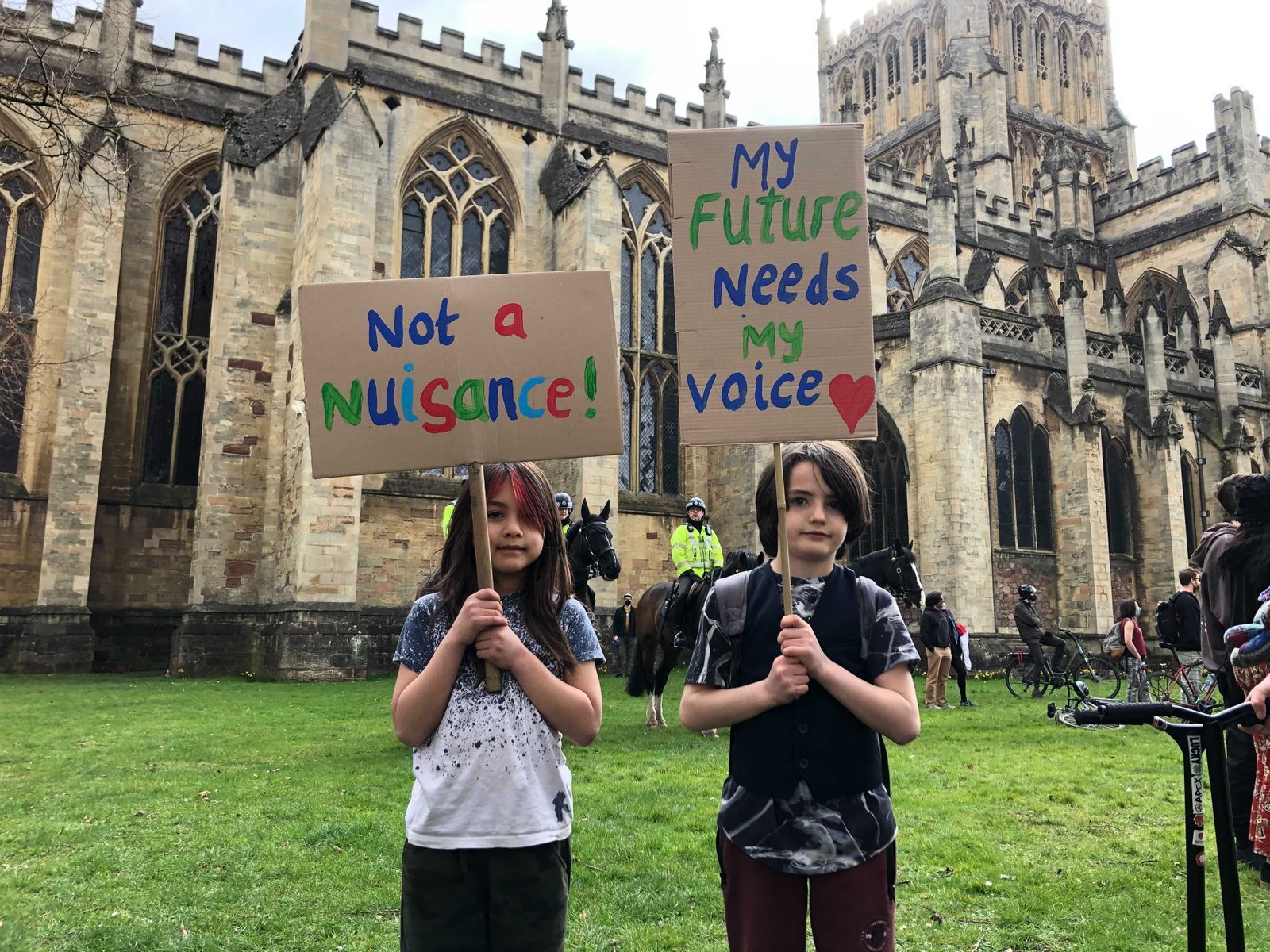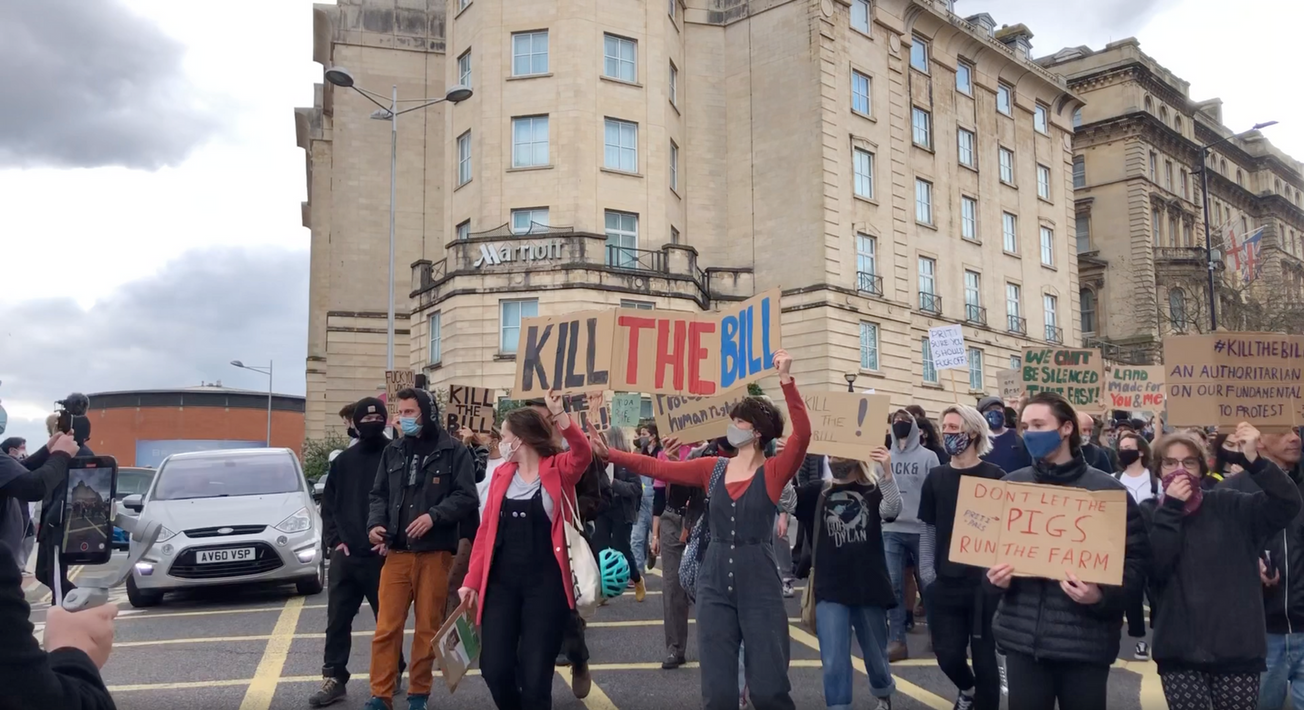By Chloe Cochran, MA, Gender and International Relations
Our right to protest has always been a pillar of democracy, and by extension a democratic society. In a world dominated by the constant friction of divergent ideas, opinions and policies, protest has been our way to illustrate discontent and alliance.
Whether it be Black Lives Matter, the climate crisis, Brexit or anti-Trump protests, we get out there and we protest. But now, the Police, Crime, Sentencing and Courts Bill 2021 is threatening a right we need to protect.
University campuses have long been sites of contestation and divergence. We have seen it throughout history, and we saw it again most recently during this academic year, with the dystopian lockdown measures introduced last Autumn to deal with rising coronavirus cases.

Protests erupted at many universities for a myriad of reasons, from rent strikes to tuition fees; none were as poignant as the protest at University of Manchester in response to a fence being put up around a hall of residence. As students, our right to protest, as well as our enfranchisement, is one of the direct ways we can take action in a world where we feel increasingly disconnected from those in politics.
In the run up to the Bristol ‘Kill the Bill’ protest on Sunday the 21st of March, the Police Bill was a hot topic among my contemporaries and myself. One theme which dominated the narrative was the fear of getting arrested. Under the new legislation, police can crack down on protests for being ‘highly disruptive’.
Is it just me, or does this terminology seem scarily ambiguous? What is highly disruptive to society, and who gets to deem it so? Is it the police? The government? It’s most definitely not the people.
University campuses have long been sites of contestation and divergence
If you still don’t think this is going to impact you as a student, then consider this: this is largely in retaliation and response to both the Extinction Rebellion and Black Lives Matter movements. XR is, famously, comprised of students – from all stages of their education – how is this going to impact them now and in the future?
Last summer the world watched in awe and despair, as the statue of slave trader Edward Colston was toppled here in Bristol. Now this Bill increases the maximum prison sentence from 3 months to 10 years for vandalising a statue. Not only does this seem drastic, but it shows where the government are putting their priorities.
The prison sentence for rape (if conviction is possible) starts at 5 years. This policy illustrates that the protection of monuments is more of importance than the protection of women.
Bristol ‘Kill The Bill’ protest turns violent as protesters set fire to police vehicle
Opinion | The Kill the Bill protest has done nothing but prove the need for the Police, Crime, Sentencing and Courts Bill to go through
The right to protest has always been a privilege. Not just because internationally many people don’t have this right; but also, domestically - deciding to go out and protest is going to mean different things to different people and hold different risks.
Decided to take an afternoon off work? Some people can’t do this. Getting arrested at a climate March, and being let out without being charged? Some people don’t have this luxury.
This bill is simply not going to be felt the same way across society. International students are not citizens of this country, if they go out to protest and are met with the full force of the law, they can be deported and lose their right to study in this country.
This Bill is also a racial issue. The decision to go out and protest is going to be very different for me as a middle- class white woman, than it is for anyone who is Black or Minority Ethnic. Black people are 9 times more likely to be stopped and searched by police and 18 times more likely to have it done under section 60. This bill is going to widen this gap, as it gives police more power.
BAME people are 1.5 times more likely to be detained, and this doubles for Black people who are more than 3 times more likely. Not only does this paint a poignant picture of who this bill is going to impact the most, but it also illustrates how the risks and privileges associated with protesting are not dispersed evenly across society.
Students, like everyone, will feel the effects of this Bill in many different ways. There is no universal way it will impact our student community, and this is the problem. Not only is it ambiguous and malleable, but it also sets a dangerous precedent for legislation which infringes on our civil liberties.
Featured Image: Epigram / Billy Stockwell
Do you think that the Police, Crime, Sentencing and Courts Bill should be passed into law? Let us know!









